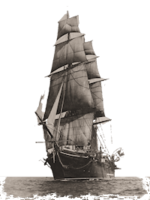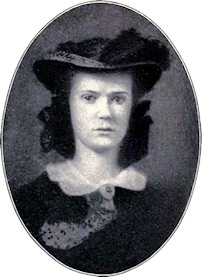Sunday morning, March 16th (15th), two o’clock. The fighting is still going on with our ships below, and the mortars are still contesting with the enemy. In our action we lost one man killed, and two slightly wounded. Three o’clock A. M., one hour later; the firing below has ceased, enemy still in possession of their batteries. All hands were called to “splice the main brace.” It will be remembered that we had some five or six of the enemy’s steamers to contend with after passing their batteries, but we soon made them skedaddle, unable to close in with them on account of their superior speed. Nine A. M.—We nailed a placard on the remains of our launch, dated five miles above Port Hudson, stating our safe arrival, and sent it drifting down the river, with the expectation of our friends below intercepting it, as our communications with them were all cut off.
At ten thirty A. M. got under way again, in company of Albatross, and proceeded on up the river in search of the enemy. The day was very stormy and foggy, still we kept on our course, our pilot being one of the very best that ever traveled this river. Four P. M., brought ship to anchor for the night; the storm is still raging severely. Nine o’clock P. M. A light is reported from the masthead, coming down the river; the rattle is sprung, calling all hands to quarters; soon ascertained, however, that it was a light on shore. The night was one of the very worst that I ever experienced—dark, stormy, and we were expecting every moment to be attacked by the enemy’s boats; the night passed over with great anxiety on the part of all hands.









 Camp Winder, March 15,1863.
Camp Winder, March 15,1863. 
